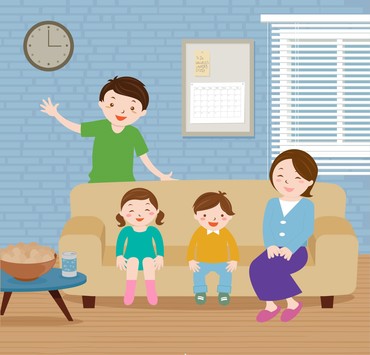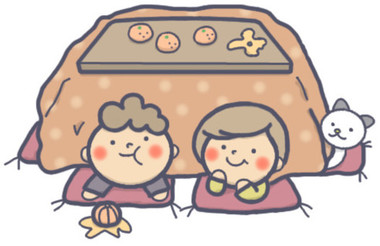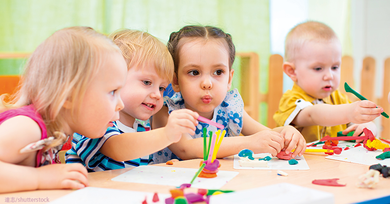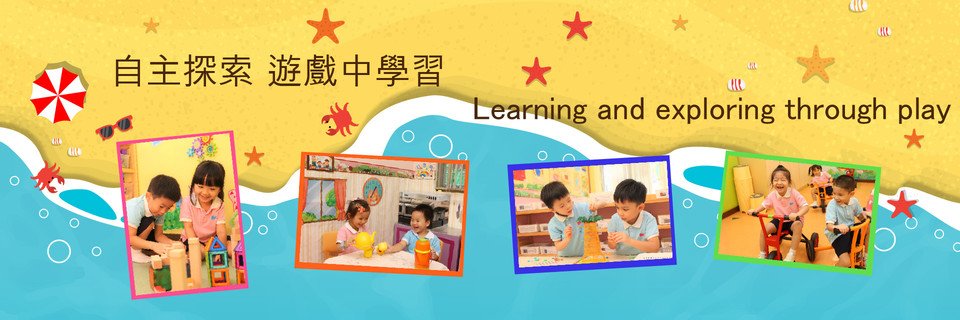Parents Zone

Enhance Parent-Child Happiness By Creating Wonderful Moments Together
In the process of parenting, parents and children often encounter conflicts in learning, behaviour, and emotions. These conflicts usually stem from misunderstandings caused by inconsistent expectations and poor communication. When parents calm down, they often hope to improve their relationship with their children through everyday life. Many parents believe that taking their children to parks or playgrounds can strengthen the parent-child bond, but some only watch from the sidelines without actually joining in. This situation is known as “pseudo-companionship”.
Improving parent-child relationships is not limited to taking children to parks and playgrounds. In fact, parents can effectively enhance parent-child happiness at home. Below are three ways to create warm family parent-child moments at home:


1. Establishing a Regular Family Activity Time
With the fast pace of modern life, both parents and children are often so busy that they find it difficult to spend quality time together. Therefore, it is particularly important to set aside a regular family activity time, where everyone can gather and engage in simple activities that develop into a positive habit and routine. Activities may include sports, watching movies, or playing board games. Through such diverse activities, children and parents can express their thoughts and feelings, learn from each other, and share joyful moments.
2.Doing Chores Together
Every family member is an indispensable part of the home. Parents should not shoulder all household responsibilities—children should also develop a sense of responsibility. Letting them take part in daily chores, such as cleaning their rooms, organising toys, or helping with simple cooking, gives them a sense of belonging while cultivating responsibility. When assigning chores, parents can discuss a fair division of labour with their children. In the process, children feel that their opinions are respected, which promotes mutual understanding and trust. After completing the chores, parents and children can appreciate the results together and praise each other, enhancing family cohesion and improving everyone’s satisfaction and happiness.
3.Cooking with Children
Many families treat the kitchen as a “forbidden zone” for children, with parents often preventing them from joining in cooking due to safety or hygiene concerns. However, excessive protection can foster dependency and unintentionally create distance between parents and children. Allowing children to participate in cooking to a moderate extent can strengthen intimacy and family bonds. During the cooking process, parents and children can engage in deeper conversations, share experiences and feelings, and build stronger emotional connections. Such interaction promotes cooperation, enhances trust and support, boosts children’s self-confidence, and makes family life more harmonious and joyful.
Improving parent-child relationships is not achieved solely through recreational activities but also through genuine companionship and communication. Only through meaningful interaction can parents and children truly understand each other, remove barriers, and strengthen emotional bonds. Sincere companionship enables both sides to share feelings, perspectives, and experiences in daily life, thereby building deeper trust and understanding. Only then can parent-child relationships truly improve and flourish.


Parents’ feedback and discipline mentality helps develop children self-confidence
Self-confidence is an essential cornerstone for children’s healthy growth; it profoundly impacts their learning, socialization and mental health. As a parent, your role is crucial in cultivating children’s self-confidence. Patience is key, not just in responding to children, but in examining and adjusting your disciplinary mentality. It is about facing the difficulties and challenges together with your children, fostering an attitude of acceptance and companionship for growth.


As children's first teachers, parents play a crucial role in shaping their self-image and self-confidence. The responses of parents to their children's learning challenges are instrumental in this process. It's natural for parents to feel discouraged, disappointed, or even angry when their children struggle to understand or make mistakes. In such moments, it's important to consider your response. How will you handle the situation? Will you offer help or resort to scolding?
The role of parents is not only to raise the children but to help them grow. If you do everything for them, this will deprive them of learning opportunities and make them dependent, affecting their self-confidence and their sense of responsibility. It is crucial to understand that overprotection can harm your children's independence, making them less confident and responsible. On the contrary, if parents are overly strict, demanding their children do better, or even often blame them, this will lower their self-esteem and hinder their ability and confidence to learn independently. It is important to remember that your emotions, behaviours, and reactions as a parent should be a result of self-reflection. This self-reflection can empower you, helping you to understand your own uneasiness and anxiety, or your high expectations, and how these might be affecting your parenting.
Parents should pay more attention to their emotions and feelings; you may feel angry, worried, and uneasy, but what do you value most? We must be calm and avoid overly intervening, controlling or picking on children's behaviour. It is our responsibility to observe our children's abilities, behaviours and needs with a supportive smile. When we notice that our children need encouragement and help from adults, we can offer assistance and work with them to face the challenge to help them build their self-confidence.
Children’s perceptions play a crucial role in shaping their behaviour. As parents, it is important to be mindful of this influence. When you notice good behaviour in your children, acknowledge it with words and actions. This not only reinforces positive behaviour but also communicates to your children that you value and appreciate their efforts.For instance, 'You did very well! You picked up the toys without me reminding you, which mummy appreciates your help.' or'I can see you are working hard in writing. You did very well.'
Encouragement is a key strategy for parents to help their children keep trying and acting to increase their ability. By focusing on their achievements rather than what they cannot do, parents can create a supportive environment where children feel safe to explore and learn. This approach lets children understand that with perseverance and hard work, they can achieve their goals. It is important for parents to appreciate their children's process, rather than constantly demanding and correcting their behaviour.
As parents, you play a crucial role in providing the necessary support and encouragement to your children. Your positive affirmations such as “You are improving!” and “I understand it is a bit difficult; we can try harder together!” Supports are more than just words. They are the building blocks of your children’s self-confidence, helping them face difficulties and reach their potential.


Cultivating children’s character starts with daily life
Parents have a profound impact on their children’s character development. Role-modelling, storytelling, learning through games, and giving encouragement and support will help children build and cultivate good character in their daily lives.


1. Role modelling: Parents are their first teachers
Children are born with the ability to imitate; they often learn by observing and imitating their parents’ behaviour. As parents, you have a significant role in shaping your children's behavior. You can show and teach good behaviour through daily life, be a good model, abide by your promises to your children, and let them understand the importance of integrity. By doing so, you can cultivate good behaviour such as trustworthiness and honesty in your children.
2. Teach Value through sharing stories
Storytelling is not just a one-time activity, but a part of daily life. It is one of the most effective ways to instill values in children. By choosing appropriate stories about kindness, courage, and honesty, parents can create a routine of sharing and reading together. After reading, discussing the stories can further enhance their understanding and help them relate to similar experiences, reinforcing the importance of good character.
3. Through games to cultivate character
Different games can guide and teach good character in a pleasant environment. For example, parents can role-play different roles, such as doctors or teachers, to learn their responsibilities and the value of different roles; they can learn to care and be empathic. Group games can also develop team spirit and cooperation.
4.Encouragement and affirmation to build good character
Active encouragement and affirmation can effectively enhance children’s self-confidence. As a parent, there is no greater joy than discovering your children’s good behaviour in daily life and telling them directly through words and actions. When you observe your children take the initiative to help others, join in activities or help finish small tasks at home, it fills you with a sense of pride and happiness. This not only helps your children know their characteristics but also makes you feel fulfilled as a parent. For example, you can praise them so that they know they have good character: “I am happy to see that you are friendly and willing to help others,” “I am proud of you! you have been working hard and have put in effort to finish the puzzles,” “You did well, you have shown you are a responsible person and finished your task.”
The cultivation of children's good character requires careful guidance from parents. Through role modelling, sharing stories, learning through play, encouragement, and affirmation, parents can effectively cultivate and develop good character and teach good values and life attitudes in daily life.


Developing of problem-solving skills
The kindergarten stage is a critical period for young children to learn problem-solving skills, and parents play a vital role in the process, being the children's reference and learning objects. At this age stage, toddlers begin to encounter different problems. Socializing, learning, emotional processing, etc., are some topics that young children need to learn to solve. Many parents will encounter obstacles everywhere in the process and are confused about their children's behaviours.


One common problem is that parents find that toddlers tend to be less willing to share toys with others. In fact, at this time, parents can set an example for their children through their daily behaviours; parents can intentionally share some items with their children and explain the meaning of sharing in simple language. For example, parents can tell their toddlers, “Let’s share this biscuit, okay? I hope to eat something delicious with you.” Let their toddlers experience the joy of sharing in firsthand and understand that sharing this action can connect with language and help them build processing techniques on social issues.
Another common situation is that toddlers are likelier to argue when dealing with peers. When toddlers have arguments with other children, parents are sometimes eager to discuss with their children or are already angry. In hindsight, this fails to assist children in independent thinking and serves as a wrong example, allowing children to believe that using intense emotional expression can solve problems mistakenly. When intervening, parents should patiently listen to their children's descriptions, understand the ins and outs of things, and then teach their children how to resolve conflicts in a simple and easy-to-understand way. For example: "I know you are angry but hitting someone is wrong. Next time you can go to the teacher for help." It not only shows the child's understanding of the mood but also gives the child enough knowledge to deal with similar situations in the future, improving their problem-solving skills. In addition to guiding at home, parents can create more learning opportunities, such as participating in community activities with their children, parent-child activities in kindergarten or family gatherings, and allowing children to face different situations in a safe environment. The more such opportunities, the better the toddler's problem-solving skills will develop. It is worth mentioning that establishing a safe and supportive home environment is particularly important for improving early childhood problem-solving skills. When toddlers feel "love" and "security" at home, they are more confident and braver.
Parents can promote this sense of security by communicating with their children and sharing each other’s feelings. For example, every night before going to bed, parents can talk to their toddler about what happened today, understand what their toddler is thinking, and give positive responses and encouragement so that the toddler knows that the difficulty they have encountered is not complicated and that there are parents of support so that they can have the courage and willingness to try when dealing with complex problems in the future.
Each toddler builds problem-solving skills at a different pace, and some toddlers may need more time and support. Parents should remain patient, respect their toddler’s personality and development rhythm, and give them complete love and support. In such an environment, young children will naturally increase their interest in socializing and getting along with others and will be more likely to deal with different good and bad times in the days to come.


Nurturing The Growth & Social Development of Children
The key milestones in a child’s social development involve social skills, emotional expression, self-control and communication skills. According to a research by Harvard University, a child’s social and emotional growth in the first five years of their life is vital for their overall well-being and happiness both at school and in life. The following are some of the changes in growth and social development for children aged 2-6.


Ages 2-3
During this stage, a child’s language abilities, fine and gross motor skills, cognition skills, etc. are still in the process of development. Their social behaviours exhibit a more self-centred approach, and tend to revolve around their own desires. For instance, children often argue over toys, as they think that all toys are their personal belongings, and they may prefer playing alone or having adults as their companions.
Ages 3-4
Children gradually become more independent at this age, they are able to communicate using simple sentences. They start learning to share, take turns, and follow rules in simple games. This stage also marks the beginning of spontaneous imitation and engaging in role-playing games.
Ages 4-5
Children get better to follow instructions, enabling them to actively participate in activities with others and provide simple instructions themselves. They also learn how to show care and concern for others. At this stage, their creativity flourishes, allowing them to create simple games such as sandpit play, and engage in competitive games while understanding the concept of winning and losing, in games such as “red light, green light”.
Ages 5-6
Children’s self-awareness reaches at a more mature level, and they are equipped with better observational skills, self-control and they become more independent. They will start comparing themselves to friends or adults unconsciously, and they become aware of gender differences. At the same time, they develop a preference to spend more time interacting with friends, and choose their own friends and playmates, while seeking to form friendships with their peers. At this stage, children are ready to participate in group games and grasp more complex game concepts and instructions.
How to improve a child’s social skills?
Preschool children can learn social skills through observation, imitation, games, and practical experiences in their daily lives.
- Provide learning opportunities, practice in daily life
Parents can create opportunities for children to practice social skills in various settings, such as visiting friends and relatives, at the playgrounds, and during school activities. Practice with your child by facilitating interactions and playing with different people, so that they can accumulate diverse social experiences and learn how to apply the skills they have acquired in their day-to-day life.
- Give affirmation and rewards accordingly
When children display appropriate social behaviours during interactions, such as polite greetings or taking turns in play, following rules and so on, parents should provide immediate verbal praise or non-verbal gestures of approval. In instances where children exhibit inappropriate behaviour, parents should remain calm, encourage appropriate behaviour, and demonstrate the proper ways of interaction. This approach enables children to learn and internalise correct social behaviours more effectively.
Children’s social and emotional development changes and becomes more complex as they grow. But the good news is that parents play a crucial role in fostering a child’s positive social skills. If parents provide a positive environment for children to express their emotions freely, the parents’ acceptance and affirmation will have a positive influence on their child’s social development.


Quality Parent-Child Time
Every parent aspires to give their children the best. Research shows that the quality of parent-child time has a direct impact on children’s emotional development and mental well-being. The more affection and care that parents show, the better the child’s ability is to cope with adversity, and develop self-esteem, self-efficacy and self-regulation. In addition, quality bonding time fosters a strong parent-child relationship and reinforces children’s trust in their parents, thereby enhancing the effectiveness of discipline.
In the pre-school years, children often need parental attention. However, the demands of work and household responsibilities can make it challenging to be constantly available. So, what can be done in such situations?


Three Tips for Quality Parent-Child Time:
Tip 1: Brief Moments of Positive Attention
- Even amidst countless household chores and work commitments, parents should dedicate brief moments of positive attention to their children. For example, when performing light household chores in the living room, encourage their child to play with their toys nearby, or even involve them in the activity. In the process, parents can observe their children, respond to their actions, and offer words of praise. For example, “I see you playing attentively, and solving problems by yourself. Well done!”
Tip 2: Show Empathy for the Child’s Emotional Needs
When children approach their parents, it shows that the child would like to draw their attention or have some other needs. In such moments, try to put aside your own tasks and respond to the child. Express care and affection through physical contact, such as with hugs or by patting their shoulders, and speaking to them in a gentle tone. For instance, respond to their questions by saying, “Mommy's here, is there something I can help you with?” Or by using phrases that express the willingness to listen, such as, “Is that so?” or “Go on, I’m listening”. By offering timely and appropriate responses, being attuned to their child’s emotional changes, and understanding their inner world, parents can help children establish a sense of security.
Tip 3: Playing Whole-heartedly, Finding Your Inner Child
Parents should embrace the joy of playing games that may seem childish or repetitive with their child. Adjust your mindset to match the child’s level or even let them take the lead during playtime. Children enjoy playing games such as hide-and-seek, treasure hunts, and tickling games. The laughter and physical contact during such moments enable children to feel their parents' love, fostering a stronger bond and a greater sense of closeness.
Besides daily interaction, we encourage parents to plan outdoor activities with their children during holidays. Whether it’s playing ball at the playground, building sandcastles at the beach, or having picnics in the park, these activities are inexpensive but create lasting memories through enjoyable and quality parent-child time.


Emotional Support for Children
No need to be afraid of tantrums, communicate with your heart and not with threats
Does your child always get upset when he/she wants to buy a toy? Is it hard to teach your child not to throw tantrums? Of course, parents wouldn't give in to all their children's requests, but it is embarrassing to have a child crying in public. Here's a golden formula (ACT) for parent-child communication to help you ease your child's emotions.


Tips for Parents
Tip 1: Acknowledge the feelings
- When a child is upset, parents can start by understanding and responding to the child's feelings at the moment. By understanding that the child is feeling sad, disappointed and angry from their perspective, the child will understand that their feelings are understood and accepted. This helps the child to recognise and express his or her emotional state.
For example, "I know you like this toy car, and would like to take it home..."
Tip 2: Communicate the limit
Responding to a child's emotional state is not the same as accepting inappropriate behaviour. After a child has expressed their emotions, parents need to let their child know that there are still limits to their behaviour and that it should conform to the “three don’ts”: don't hurt others, don't hurt yourself and don't break things. Parents need to explain the rules and limits, not just "say no", but clearly state what you do not accept.
For example, "But you can't throw a tantrum to express what you want".
Tip 3: Target acceptable alternatives
Once the limits have been clearly expressed, parents need to advise their children on appropriate ways to resolve the situation. Parents can start by discussing solutions with their child to learn how to properly vent his/her emotions, or give him/her two alternatives if he/she has difficulty coming up with new solutions. When the child is willing to cooperate, parents can encourage good behaviour by giving specific praise to the child.
For example, "You can choose to stay here and look at the toys, or go to the park for a while".
Parent-child relationship strategy:
Establishing a good parent-child relationship is the first step towards effective parenting. Parents can make good use of the 15-30 minutes before bedtime to talk with their children (Pillow Talks With Kids) to develop a sense of intimacy between them. At first, parents can try to praise their child in a one-way manner, e.g. "I appreciate you taking the initiative to clean up your toys today". Later on, parents can try to lead a two-way conversation with their child by reviewing their feelings and thoughts on the day together.


Intergenerational Parenting and Communication
Handle the two generations with ease
Having an elderly person at home is like having a treasure. However, when it comes to caring and getting along with each other, we often hear the "sandwich class" parents talk about their conflicts with the older generation, and we also hear the "elders" of the family share the frustration of not getting along with their children when it comes to parenting their grandchildren. Fortunately, regardless of the conflicts involved, both the 'elders' and the 'sandwich class' are people who love their children, who are there to lean on in times of trouble, and who are there to provide shelter in times of trouble.
Here are four tips on how you can easily practise effective intergenerational parenting.


Tips for Parents
Tip 1: Positive attitude
- Respect each other's philosophy of parenting, trust and gratitude for each other's selfless support, and create the best possible environment for your child to be supported.
Tip 2: Good communication
- The best way to parent with the elderly is to communicate openly and understand each other's situation. For example, "Mum, we understand that you love your grandson and want him to be happy, but we think eating too many snacks before dinner will spoil his appetite for dinner! If you want to reward him, you can give it to him before 3pm.
Tip 3: Consistent rules
- Establish and implement basic rules together, and review them at family meetings when special circumstances or difficulties arise. For example, the rest schedule for children, the division of labour between parents and grandparents, computer time limits, refreshment arrangements, etc. Occasionally, a smart child takes advantages to be "spoiled", so it is important for adults to remember that you are "on the same page" and respond together with the same rules and tone.
Tip 4︰Make good use of third-party resources
New parents and new grandparents are always developing their own parenting skills without realising it. However, it must have taken a great deal of bonding, communication, effort and improvement to develop these secrets. If there are knots that cannot be untied in terms of getting along, bonding and communication, you may consider seeking outside resources. For example, social workers in kindergartens, child care services, integrated family service centres, etc. can help to improve relationships and reduce the stress of parenting.
Parent-child relationship strategy: Build quality parent-child time
Create a family atmosphere: Take lots of group photos with the young and old and decorate your home.


Disciplined Lifestyle and Routine
Useful tips on managing your lifestyle
From time to time, parents share various difficulties in their lives. Parents are always frustrated by their children's reluctance to eat, their unwillingness to go to bed at night or to get up in the morning. These situations are related to the child's ability to establish a routine. Here are two tips on how to establish a routine for your child.
Strategies:


Tips for Parents
Tip 1: Establish a fixed schedule of rest
By setting a daily schedule with your child, you will help your child understand the daily routine and work schedule, which will help them to follow the agreed rules and learn to manage their time. Parents can also include cute and easy-to-understand picture cards to enhance the playfulness and clarity of the daily routine.
Tip 2: Control the environment
By reducing temptations such as TV, tablets and toys at appropriate times and providing a good learning and eating environment for your child, you can help your child focus on a disciplined lifestyle. Parents should also try to set an example by being the role model for their children during meals. It is also advisable to set a regular place for your child to study and keep it tidy so that your child can develop good study habits.
As a parent, you will have to go through numerous stages of trial and error to establish a good routine for your child, and finally, here are two tips to keep your child motivated in times of fatigue:
Tip 1: Timely Rewards
Reward your child when they improve their behaviour or reach their goals. For example, a sticker, a playtime with mum, a delicious meal or dessert. These rewards help to reinforce good behaviour and facilitate the parent-child relationship.
Tip 2: Appropriate Consequences
If the child does not follow the rules, parents should try to keep calm. Take a firm stance and follow through with appropriate consequences. For example, stopping cartoons for three days, or temporarily suspending their favourite strawberries for two days.
Remember: the above rewards and punishments need to be consistent with all carers, with plenty of encouragement and reminders to achieve results.
Parent-child relationship strategy
Take turns drawing each other's portraits to increase their bonding time. Spend a few minutes gazing at each other's features, even touching each other's eyebrows, noses, mouths and ears, and then draw them on paper. Instead of commenting on the quality of the child's work, focus on the interaction with the child and enjoy the intimacy and fulfilment that the art activity brings.


Disciplinary Sharing about Children Breaking Promises - Teaching Approach to Reneging Kids
Parents, have you ever been troubled by the situations that your children promise something casually, but then eat their words? For example, your children agree to play in the park for a while then go home, but finally they refuse to leave and end up crying? Or when you go to a toy store with your children, they insist on your buying a toy before leaving, which causes parent-child conflict? Here I will share with you some coping methods to prevent children from becoming rambunctious and avoid unnecessary conflicts!


Tips for Parents
Tip 1: Respond to their feelings, set clear boundaries and give specific instructions
When children are rambunctious, parents can first understand their feelings and then establish restrictions and give instructions. For example, when children are reluctant to leave the park, parents can say: "I know you really want to play, but it's time for us to go." or "I saw you had a good time in the park, but it's dark now and we are going home for dinner." Parents can also make use of special parent-child rituals or gestures to confirm their commitments, such as giving a "high five", making a pinky promise or pressing the "start" button and so on.
Tip 2: Advanced agreement and early notification
While watching a wonderful movie, being interrupted and not getting what you want is emotionally disruptive. It is even more difficult for children, who are still learning to control their emotions and adapt to changes. Parents can give advanced notification before their children become reckless, so that children can be mentally prepared early. For example, parents can remind their children before entering the park by saying that: "You can play in the park for an hour today, then we will go back home." or "When the timer beeps later, we will have to leave."
Tip 3: Specific instructions
When parents give their children instructions, they need to tell them what to do in detail. Young children cannot fully understand vague instructions, so parents' instructions must be concise, specific and positive. For example, parents can change "clean the room" into "put the toys back into the toy box". Parents can also allow 5-10 seconds for their children to digest the instructions. If parents think that is something which the children should do, avoid asking him questions such as "Is it okay?" or "Can you do that?", to avoid giving them a reason to refuse out of respect.
When giving specific instructions, parents can try to follow these steps:
- Approach the children, make eye contact with them and call them by their names.
- Instructions: We have to leave the park (allow 5-10 seconds or you can give instructions twice).
- Children who follow your instructions can be given immediate praise. For example: "You have done a good job by keeping your promise and leaving the park immediately!" If the children don't follow your instructions, you can tell them the consequences. For example: "As you haven't kept your promise, tonight’s parent-child reading/playing time is canceled” (allow 5-10 seconds for the children to understand).
Wonderful Way to Boost the Parent-Child Relationship
Parents can spend 10-15 minutes every day on playing a game with their children to create quality parent-child time. Parents can play intimate interactive games with their children with cotton balls. For example, parents can first let their children lie on the bed and close their eyes, then gently touch their body with a cotton ball, and let them open their eyes and guess which body part was just touched (if they cannot express it in words yet, they can point out the parts with their fingers). Parents can also take turns taking the roles of touching and guessing with their children. During the playing process, a sense of intimacy can be built with their children through physical contact.


How to Parent a Clingy Child
Don’t be upset! Try out these tips
A parent’s life is hectic. Especially when you are busy with chores, hurrying to work or going out, a clingy child would often make you very upset and feel overwhelmed. Here are five moves you can learn to soothe your child’s emotion and enrich his/her schedule, so that you may work in peace or enjoy some “ME TIME”.

Useful Tips
Tip 1: Be positive
Parents are a mirror of their children. Children always imitate their parents’ words and actions. Stay calm and speak positively. Children will learn to express themselves calmly.
For example, your child keeps calling you when you are away. I know you might be having a headache, but please take a breath and tell your child gently, “Mom misses you too. I’m going to buy ice-cream. Let’s have some ice-cream when I come home.”
Tip 2: Reflect feelings
Children often have emotions. However, children may not be aware of their own emotions, and they may not know that they are over-expressing them. Parents may help children express themselves with some “mind-reading magic”:
For example, “I see that you are pouting your lips (facial expression/behaviour). It looks like you are unhappy... (feeling/emotion).”
Tip 3: Synchronise emotions
Children always want to be with their parents and seek to connect with them. Parents can use words and deeds to make their children feel understood. This tacit understanding of “you cry, I cry; you laugh, I laugh” can establish good security support for children and also reduce their separation anxiety.
For example, “Dad knows that you want to go to work with me (the reason why the child is unhappy). Dad doesn’t want to leave you too. I’ll come home to play with you once I’ve finished work!”
Tip 4: Tell your child the limitations
Let children understand the current restrictions and help them learn to face things that do not work the way they want.
For example, “The market is too crowded. It is too dangerous for children. Mom can’t bring you along!”
Tip 5: Enrich your child’s schedule
Before you go out, make specific arrangements for your child to have fun to distract him/her from clinging to you. When your child calls to tell you he/she misses you, use the above four strategies to calm him/her, and then shift his/her attention to specific things. Don’t forget to praise him/her for being able to play by themselves to reinforce his/her good behaviour when you return home.
For example, “The handicraft you made this morning is so creative! Mommy appreciates that you can play by yourself! And you even finished it nicely!”
A Magic for Parent-Child Relationship
The hand shadow game: Spare 10 minutes before bed. Cast shadows of your hands with light. Tell stories with the shadows. Enjoy the fun with your child.


Healthy and Positive Eating Habits
Many parents often lament how they are waging a war daily at the dining table. They take a great deal of effort to prepare a scrumptious spread of dishes, and yet the food in their child’s bowl remains untouched. Parents may get disappointed, angry, and also concerned that their child would not have adequate nutrition to grow taller. I hope the following four tips can help you to reduce the worries caused by your child’s dietary habits!


Useful Tips
Tip 1: Setting Mealtime Boundaries
Set a target mealtime together with your child and give appropriate prompts halfway through the meal. For example, try to set a reasonable rule of “finishing a meal in 30 minutes”, and then gently remind your child of the remaining time in the final 15 minutes of the mealtime. You can also use a visual reminder such as a clock, hourglass, or timer.”
Tip 2: Take A Consistent and Firm Stance
Parents must maintain a consistent and firm stance when their child gets distracted during meals. For example, if a child makes a din, as he/she wants to watch TV while eating, we recommended that parents maintain a consistent attitude in guiding the child to follow appropriate mealtime rules.
“We must finish our meal first before turning the TV on. If we don't eat quickly, we will have less time to watch TV.”
Tip 3: Give Positive Encouragement and Praises
Praising your child’s good behaviour in a timely manner can have a positive influence, and help to reinforce their motivation to eat. When a child makes an effort to try out food items that he/she dislikes and resists, parents can reward them with small tokens such as stickers and stamps on a reward chart to reinforce their good behaviour.
For example, “Daddy appreciates your willingness to try.”
“Mummy sees that you are making an effort to eat, let me give you a stamp on your reward chart!”
Tip 3: Offer a Fun Variety of Foods
The use of brightly coloured ingredients to prepare your dishes will attract the child’s attention and make them more motivated to eat. Parents can also create food in different shapes or cartoon characters during holidays, festivities, or in their free time to add an element of surprise for their child. Making meals fun can help to strengthen the child’s positive behaviour and improve the parent-child relationship.
Wonderful Way to Boost the Parent-Child Relationship
Engage your child with tasks in the kitchen, such as asking them to break an egg, rinse rice, and measure the flour to enhance the parent-child relationship.


